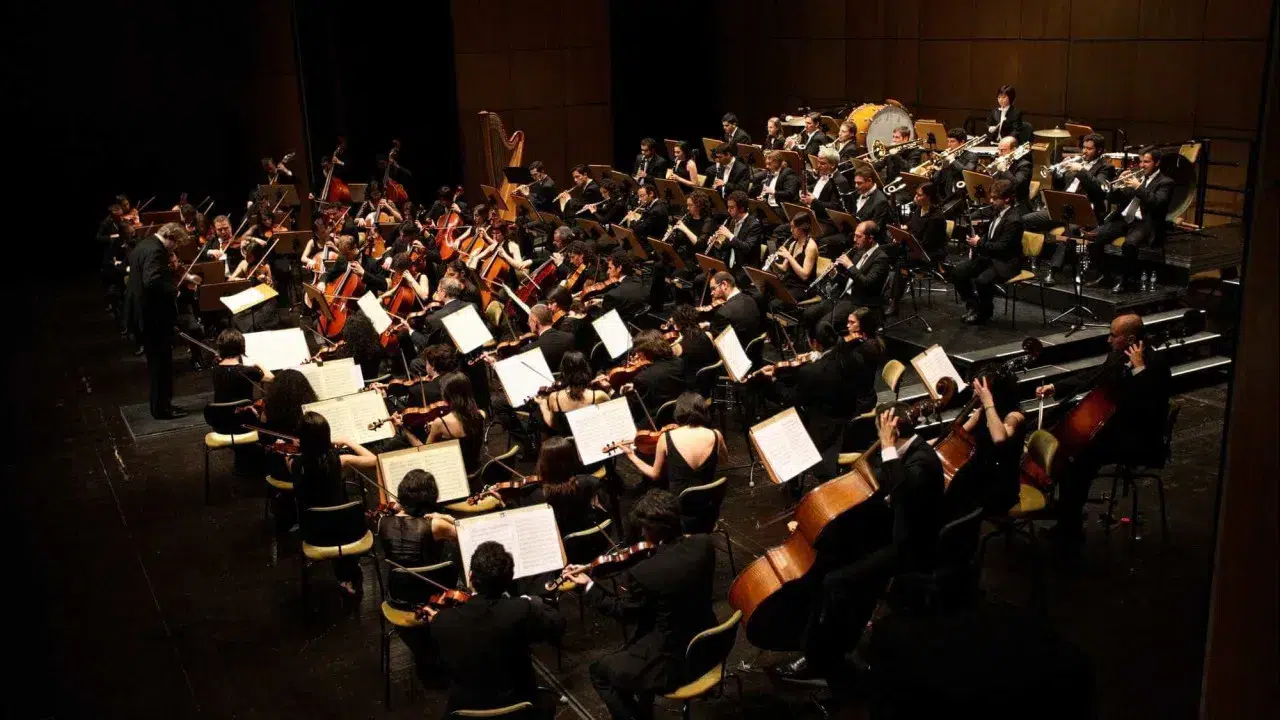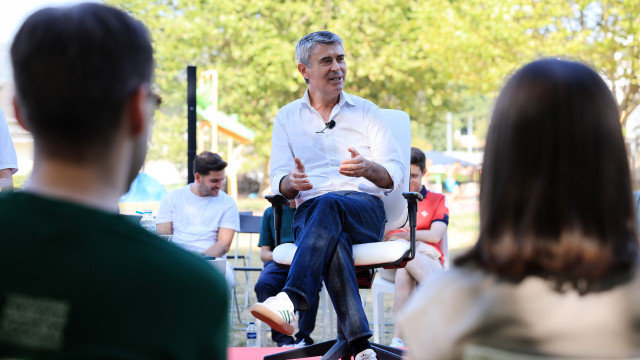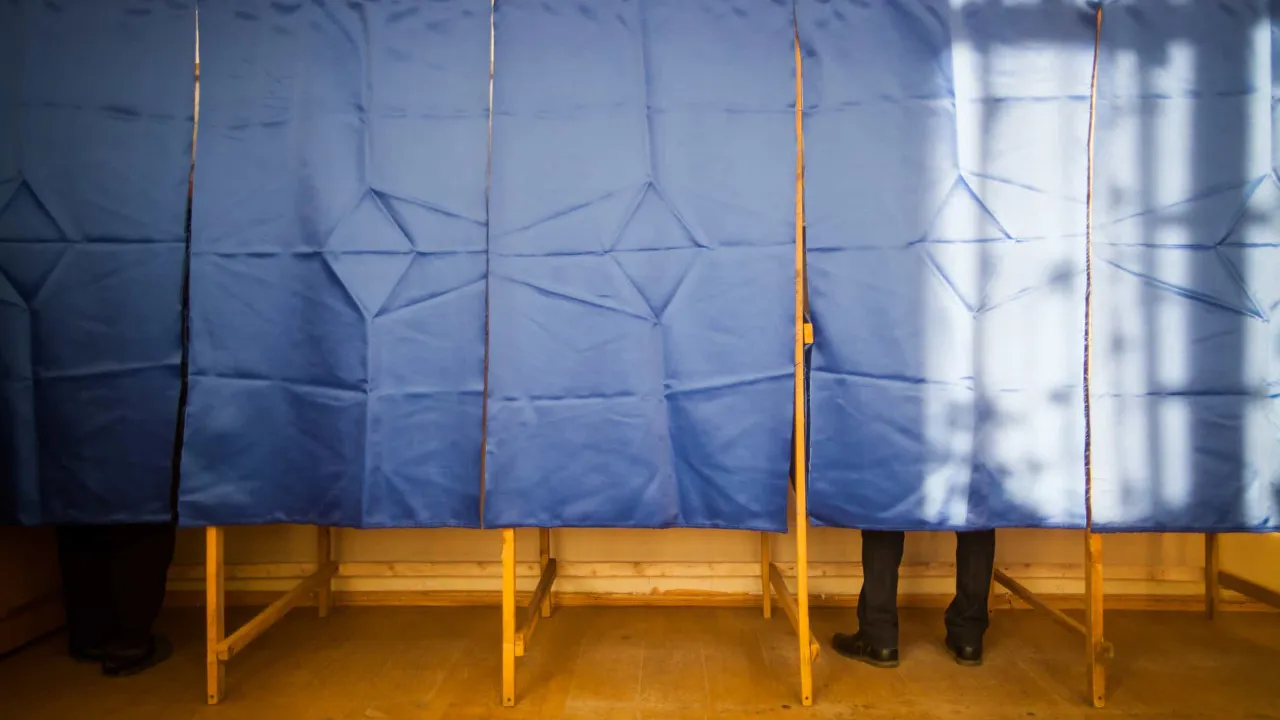
“We feel that we have a lot of room for growth,” said Pedro Neves, the artistic director and principal conductor of the OML, in an interview, noting the million residents of Greater Lisbon and the possibility of having “between four thousand and five thousand spectators per week at Metropolitana’s concerts.”
Pedro Neves acknowledges that building an audience “takes time,” as “people need to develop habits.” “A cultural habit is not built overnight,” he stated.
In 2024, Metropolitana’s concerts attracted 50,000 spectators, with “an average of 360 performances,” including OML concerts, chamber music, and soloist recitals, representing “a Herculean task without having an own venue,” Pedro Neves declared.
In the next season, Metropolitana’s headquarters in Junqueira, Lisbon, at the former Standard Eléctrica building facing the Tagus River, will open its doors. This is the Espaço M, dedicated especially to chamber music.
The 2025-2026 season of OML will be divided into two, distinguishing between the professional and academic parts as a unified project.
The idea of separating the professional from the academic aspect, reflecting the three schools of Metropolitana, was already in Pedro Neves’ plans when he became the principal conductor of OML in the 2020-2021 season.
“This initiative to separate these two parallel seasons aims for the public to have a clearer image of Metropolitana’s work: a professional one is OML’s and another running parallel, to be announced later, at the beginning of the academic year, which we call ‘Ensaio Geral,’ the season for academic orchestras, and all chamber music within Metropolitana’s three schools.”
Metropolitana oversees the Conservatório de Música, the Escola Profissional, and the Academia Nacional Superior de Orquestra (ANSO), alongside the OML, which comprises 34 professional musicians.
“The two seasons are increasingly defined,” stated Pedro Neves, indicating that “the general public ends up with a better understanding of the work done at Metropolitana.”
The conductor sees a “difficulty in people understanding” this work. “On the one hand, we have this unique fact of working with both the artistic and pedagogical sides, but it was necessary to differentiate the two, which are different, hence the need to further refine this message.”
By presenting two seasons, the professional and the academic, a message is established to “clarify all the work we do in that house, which sometimes is a little invisible,” said Pedro Neves, highlighting the ongoing “struggle for a dedicated concert hall.”
This will be “the struggle of the coming years,” he stated.
Successive Metropolitana leaders have expressed this desire as a fundamental tool for OML’s growth.
Pedro Neves mentioned that the OML performs in various venues in the capital and the Lisbon Metropolitan Area, but a dedicated concert hall “would clarify” the orchestra’s work.
The OML has regularly performed at the Teatro Tivoli in Lisbon, “which has been one of Metropolitana’s partners, with increasing presence in their season, as they invest in classical music.”
“An investment in growth” in which OML participates, Neves said, indicating that different institutions express interest in “bringing music to their theater,” demonstrating recognition of the orchestra’s activity and quality.
However, this does not preclude “having a dedicated music hall in Lisbon, which would be identified as the ‘music hall,’ which remains a goal for the near future,” Pedro Neves added.
“In Lisbon, it is necessary to have a music hall that people recognize ‘there is music there,’ which we currently lack. We have different types of venues, but we need to build this,” said the conductor, considering it “a shortcoming in the Portuguese capital, unlike other European capitals that even have more than one” concert hall, suggesting starting from scratch or adapting an existing space without compromising other active venues.
Referring to the OML with a focus on AML, including foreign and domestic performances – this year, for example, the orchestra will play at the Jardins Valverde in Santar, Viseu district, on September 14, one day before the new season’s opening concert.
Pedro Neves stated that “there is an attempt to broaden regional promoters,” meaning municipalities supporting Metropolitana.
Currently, there are four: Lourinhã, Montijo, Setúbal, and Caldas da Rainha, municipalities where Metropolitana regularly performs.
In Lisbon, usual venues include the Centro Cultural de Belém, where they hold the “more festive concerts” like New Year’s, Easter, and Carnival, the Teatro S. Luiz, where they will present the complete Schumann Symphonies in the upcoming season, the Universidade Nova Rectorate, the Casa da América Latina, and the Teatro Tivoli.
In the upcoming season, starting in September, the OML will debut at the Instituto de Higiene e Medicina Tropical auditorium in Junqueira.
The 2025/2026 season schedule is available on the OML website (www.metropolitana.pt).




